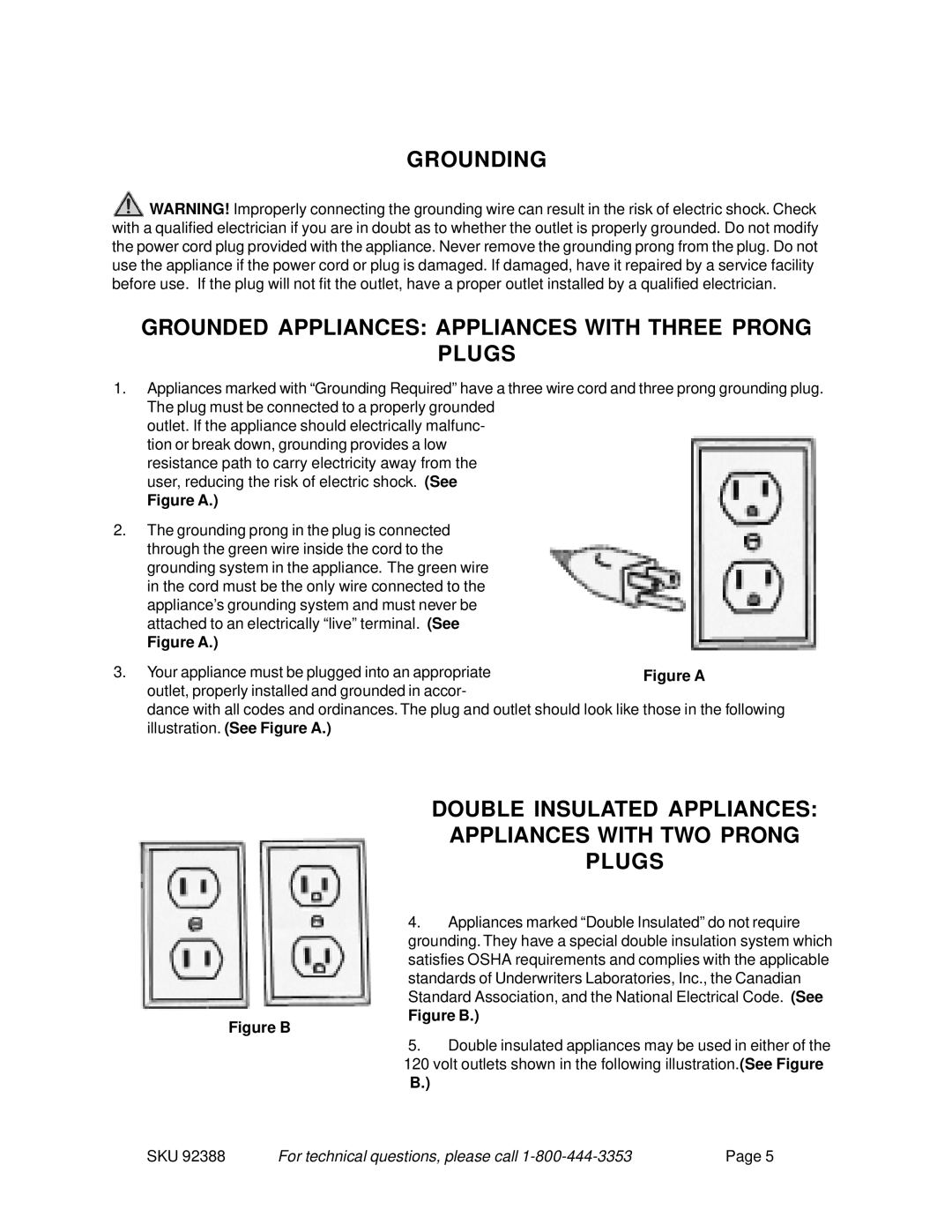
GROUNDING
![]() WARNING! Improperly connecting the grounding wire can result in the risk of electric shock. Check with a qualified electrician if you are in doubt as to whether the outlet is properly grounded. Do not modify the power cord plug provided with the appliance. Never remove the grounding prong from the plug. Do not use the appliance if the power cord or plug is damaged. If damaged, have it repaired by a service facility before use. If the plug will not fit the outlet, have a proper outlet installed by a qualified electrician.
WARNING! Improperly connecting the grounding wire can result in the risk of electric shock. Check with a qualified electrician if you are in doubt as to whether the outlet is properly grounded. Do not modify the power cord plug provided with the appliance. Never remove the grounding prong from the plug. Do not use the appliance if the power cord or plug is damaged. If damaged, have it repaired by a service facility before use. If the plug will not fit the outlet, have a proper outlet installed by a qualified electrician.
GROUNDED APPLIANCES: APPLIANCES WITH THREE PRONG
PLUGS
1.Appliances marked with “Grounding Required” have a three wire cord and three prong grounding plug. The plug must be connected to a properly grounded
outlet. If the appliance should electrically malfunc- tion or break down, grounding provides a low resistance path to carry electricity away from the user, reducing the risk of electric shock. (See
Figure A.)
2.The grounding prong in the plug is connected through the green wire inside the cord to the grounding system in the appliance. The green wire in the cord must be the only wire connected to the appliance’s grounding system and must never be attached to an electrically “live” terminal.(See
Figure A.)
3. Your appliance must be plugged into an appropriate outlet, properly installed and grounded in accor-
dance with all codes and ordinances. The plug and outlet should look like those in the following illustration. (See Figure A.)
DOUBLE INSULATED APPLIANCES:
APPLIANCES WITH TWO PRONG
PLUGS
4.Appliances marked “Double Insulated” do not require grounding. They have a special double insulation system which satisfies OSHA requirements and complies with the applicable standards of Underwriters Laboratories, Inc., the Canadian Standard Association, and the National Electrical Code. (See
Figure B.)
Figure B
5.Double insulated appliances may be used in either of the 120 volt outlets shown in the following illustration.(See Figure
B.)
SKU 92388 | For technical questions, please call | Page 5 |
